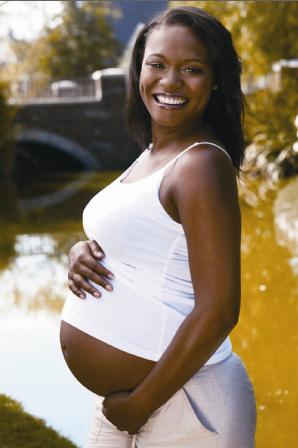
What You Need to Know About the New Pregnant Workers Fairness Act
For most women, pregnancy is tough on the body. And for many expectant moms, being at work can add to that discomfort. From uncomfortable seating to inflexible hours, the typical workplace isn’t designed with pregnant women in mind.
But that’s changing, as employers will soon be required to make reasonable accommodations for pregnant women under the new Pregnant Workers Fairness Act (PWFA)
The PWFA was passed by Congress in December 2022 and will go into effect this Tuesday, June 27, 2023. The federal law, which received bipartisan approval, will require “covered employers” to provide reasonable accommodations to a worker’s limitations related to pregnancy, childbirth or related medical conditions.
NOTE: The term “covered employers” includes private and public sector employers with at least 15 employees, Congress, federal agencies, employment agencies and labor organizations.
“One of the great things about this law is that it relies on established civil rights laws, so it doesn’t try to recreate things that don’t need to be recreated,” explained Sharyn Tejani, associate legal counsel in the office of legal counsel at the U.S. Equal Employment Opportunity Commission (EEOC).
For example, “covered employers” are the employers who are already covered under other civil rights laws.
“So if you’re covered under one, you’re covered under the other,” Tejani said. “That should make it easy for employers and for workers.”
Protections Under the Pregnant Workers Fairness Act
The PWFA will include accommodations similar to those for disabled employees under the Americans with Disabilities Act, but is tailored for pregnant women.
Tejani explained that many of the accommodations under the law cover “some pretty simple things.”
“Like, if your job requires standing all the time, you can ask for a reasonable accommodation of a stool,” Tejani said. “Lots of pregnant workers need to eat or drink during the day just to keep their body going, so you can ask for accommodations for that.”
Other examples of accommodations for pregnant women at work can include:
- Closer parking spots
- Flexible hours
- Uniforms and safety apparel that fits
- Additional break time
- Leave or time off to recover from childbirth
- Exemption from strenuous activities and/or activities that involve exposure to compounds not safe for pregnancy
- Remote work or telework
According to the EEOC, a pregnant worker doesn’t have to go through a formal process to request these accommodations. They simply have to have a discussion with their employer.
But, it’s important to note, none of these accommodations are automatic.
As Tejani explained, the accommodation can’t create an undue hardship — a significant difficulty — for the employer.
“Basically, if you’re a worker who has something related to pregnancy, childbirth or related medical condition and it makes it more difficult to do your job, you can go to your employer and have a discussion,” Tejani said. “Your employer has to provide reasonable accommodation absent undue hardship.”
Right now, protection for pregnant workers varies state by state.
As Bloomberg Law explained in an article, “Without the PWFA, the legal obligation for an employer to grant reasonable accommodations for pregnant workers has been governed by a patchwork of case law and varying state protections.”
One working mom, who requested to remain anonymous, shared her thoughts on the PWFA. She struggled to get workplace accommodations at a nonprofit organization during her second pregnancy.
“Despite it being illegal to discriminate, I think we all know this happens often,” the mom, who’s from New Jersey, said. “Hopefully this new federal law will add another layer of protection for pregnant workers needing reasonable accommodations, and we can collectively start seeing these accommodations as a right, not a privilege. Pregnancy should be celebrated. And it’s very hard to do that when employers aren’t always held accountable.”
Other Federal Laws that Apply to Pregnant Workers
In addition to the Pregnant Workers Fairness Act, these are other federal laws that apply to workers affected by pregnancy, childbirth or related medical conditions:
- Title VII: This protects an employee from discrimination based on pregnancy, childbirth or related medical conditions. It requires covered employers to treat a worker affected by pregnancy, childbirth or related medical conditions the same as other workers similar in their ability or inability to work.
- ADA: This protects employees from discrimination based on disability. It requires covered employers to provide reasonable accommodations to a person with a disability if it doesn’t cause an undue hardship for the employer. While pregnancy is not a disability under the ADA, some pregnancy-related conditions may be considered disabilities under the law.
- Family and Medical Leave Act of 1993: This provides covered employees with unpaid, job-protected leave for certain family and medical reasons.
- PUMP Act: Broadens workplace protections for employees to express breast milk at work.
For more information about the Pregnant Workers Fairness Act and similar laws, visit eeoc.gov.






















